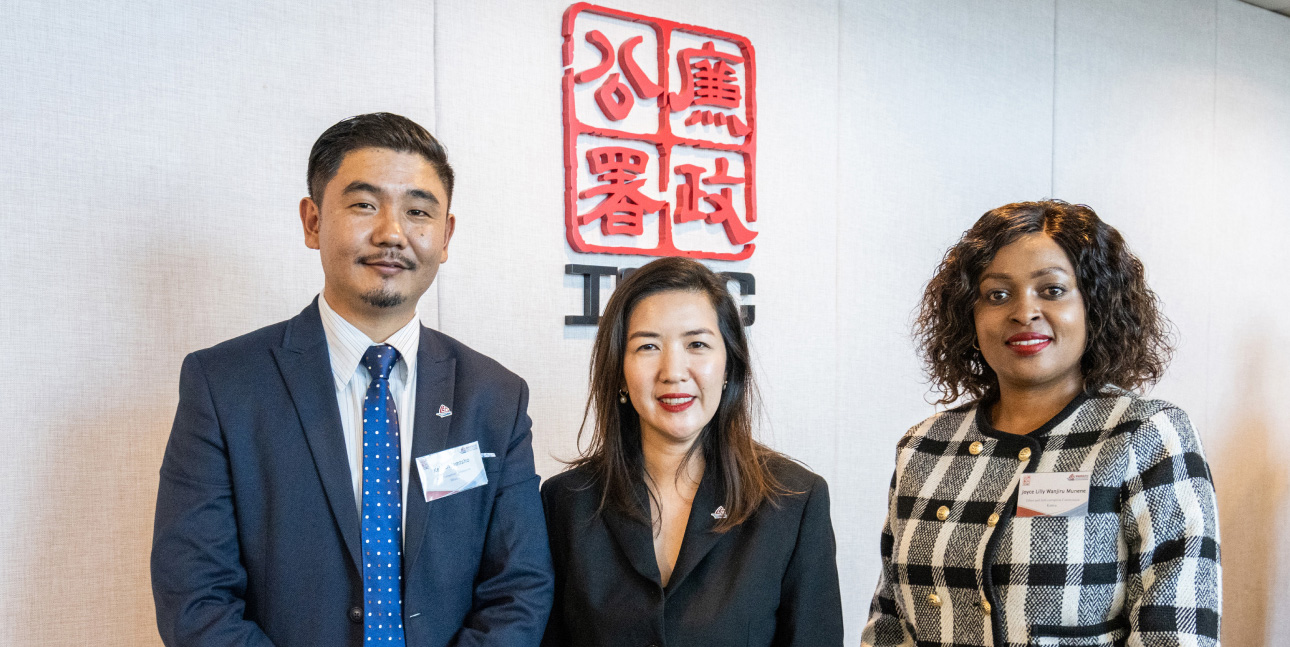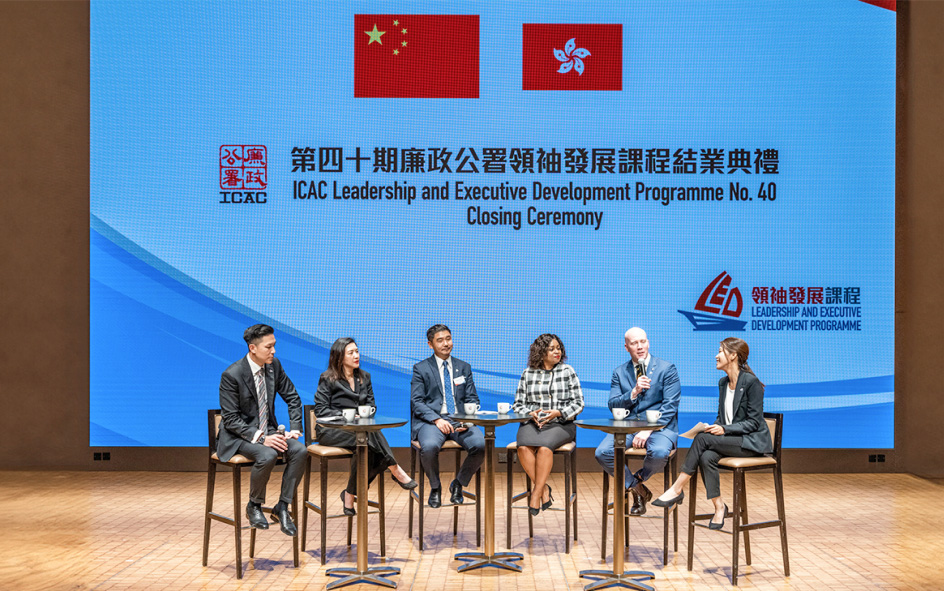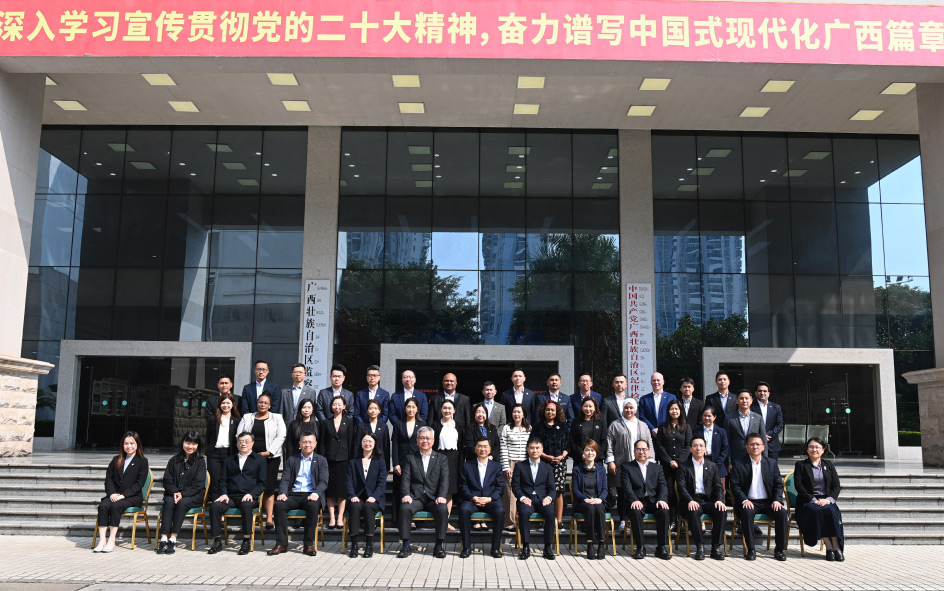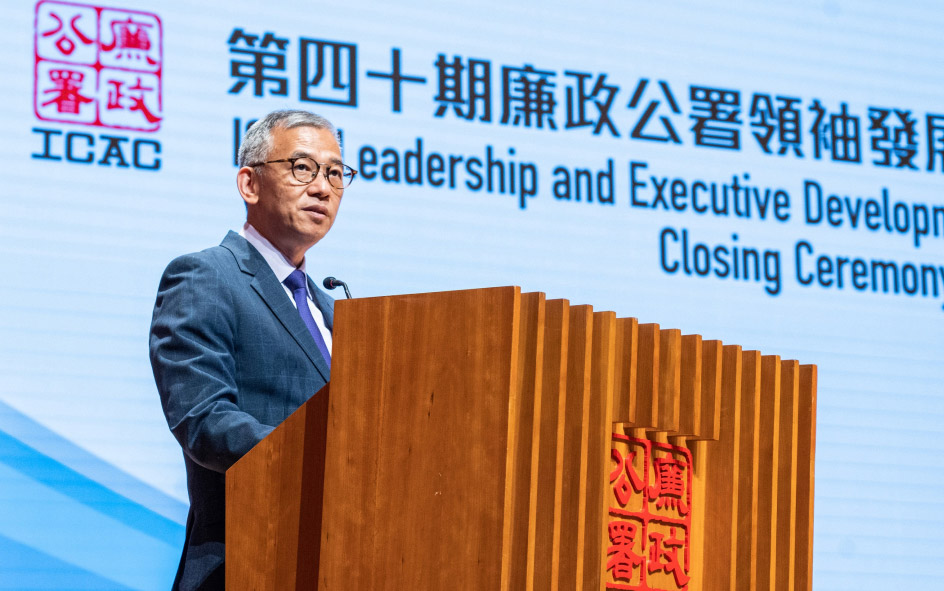ICAC leadership course gathers global participants to foster anti-graft cooperation















Mr. Kelden Jamtsho from Bhutan was overjoyed when he set foot in Hong Kong in November, nine years since he last visited the city. He was delighted to see the charming night view of the Victoria Harbour again and savour various delectable Oriental dishes. But this was more than a leisure visit for the Bhutanese. This time he had embarked on an important journey – taking part in a three-week anti-corruption course for law enforcement leaders.
Mr Jamtsho, Deputy Chief Legal Officer of the Anti-Corruption Commission of Bhutan, was one of the participants of the ICAC Leadership and Executive Development (LED) Programme No. 40 which took place from mid-November to early December 2023. The LED Programme attracted 31 officers from local, Mainland, Macao and overseas law enforcement agencies, more than half of whom coming from jurisdictions outside Hong Kong.
Bhutan has been a loyal supporter of the LED Programme in recent years and Mr Jamtsho was the sixth representative of the country in the programme. In an interview with the ICAC Post, Mr Jamtsho applauded the LED Programme for facilitating knowledge exchange and experience sharing among anti-bribery professionals around the world. He noted that officers from Bhutan could always gain new insights from anti-corruption training in Hong Kong.
“Fighting corruption is a challenging task which relies on a team of professional officers. I am pleased that the LED Programme provided insights on how leadership could help institutions overcome difficult times and issues, while at the same time enhance their anti-bribery capabilities,” Mr Jamtsho said.
Restructured from the former ICAC Chief Investigators’ Command Course, the LED Programme, with its enhanced contents, set to further strengthen partnership and collaboration among anti-graft and law enforcement agencies worldwide. The programme was also one of the flagship courses of the Hong Kong International Academy Against Corruption which would be established in early 2024.
Ms Irish Kirbee V. Tibayan, National Anti-corruption Programme Officer of the United Nations Office on Drugs and Crime (UNODC), expressed her appreciation for the LED Programme which provided the opportunity for face-to-face exchanges with participants worldwide after the pandemic in the past three years. She was the first UNODC representative attending the LED Programme.
“Through the three-week course, participants have built genuine and solid trust and partnership through interactions. I believe our bonds will contribute to future cooperation and other initiatives in combating corruption,” Ms Tibayan noted.
Joining the LED Programme for the first time, Kenya, an East African Belt and Road (B&R) country, was represented by Ms Joyce.W.Munene, HSC, Acting Assistant Director of the Ethics and Anti-corruption Commission of Kenya. Ms Munene said the LED Programme provided her with first-hand understanding about the ICAC’s robust anti-corruption strategy which was proven to be successful in the past 50 years. She added that the model was of good reference value for her country.
“Kenya strives to promote integrity, accountability and good governance in recent years. We are planning to introduce automation technology into our investigation processes to improve work efficiency. The LED Programme was an eye-opener for me. Hong Kong’s anti-corruption efforts are up-to-date, using technology to enhance its investigative effectiveness. I will share the experiences I gained from the LED Programme with my colleagues in Kenya,” Ms Munene added.


ICAC Commissioner Mr Woo Ying-ming noted that the LED Programme echoed the ICAC’s efforts in recent years to strengthen anti-corruption capacity-building for B&R countries, with a view to building a “Clean Silk Road” based on the principles of “inclusive dialogue”, “collective efforts” and “shared benefits”. Mr Woo encouraged LED Programme participants to contribute to the global anti-corruption cause by bringing home insights and experience learnt from each other and laying a solid foundation for fostering international collaboration in future.
Mr Ricky Yau Shu-chun, Deputy Commissioner and Head of Operations of the ICAC, highlighted that the year 2023 marked the 20th anniversary of the United Nations Convention against Corruption (UNCAC). Under the UNCAC, the Central People’s Government appointed the ICAC to assist other state parties of the convention in enhancing their capabilities in combating corruption, strengthening cooperation with anti-graft agencies among different jurisdictions, and providing appropriate training programmes. The LED Programme was a key component of the ICAC’s commitment to this mission.
During the LED Programme, ICAC senior officers illustrated different aspects of the work of the Commission through case studies, its “three-pronged” strategy encompassing law enforcement, prevention and education, as well as investigative skills and application of technology, etc. Participants also visited other law enforcement agencies to deepen their understanding of Hong Kong. Government officials and guest speakers from public organisations and law enforcement agencies were also invited to speak at the LED Programme to share with participants their insights on leadership.
The LED Programme also featured a six-day study tour to various authorities in Guangxi Zhuang Autonomous Region, including its Commission for Discipline Inspection and Supervision, providing participants with an opportunity to gain first-hand knowledge of Mainland’s latest development in integrity building, industrial technology and environmental conservation.
